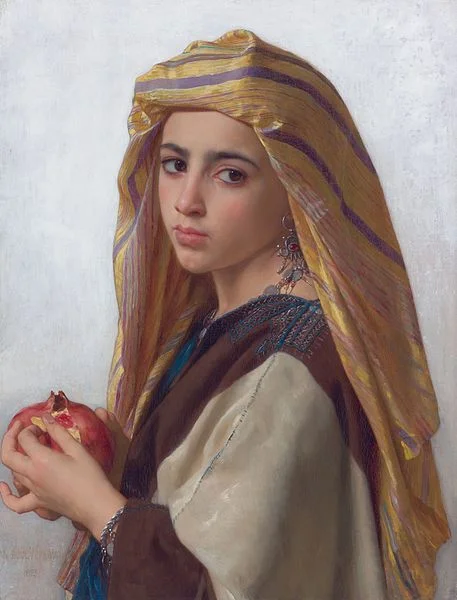The slave of a sheikh
“عبد الشيخ شيخ
The slave of a sheik is a sheikh.”
Writing of French Mandate Syria the Marxian sociologist Hanna Batatu drew attention to the “prestige” that flowed to “favored slaves” through the patronage of tribal leaders (in this case, in the Fedʿān tribe).[1] Then as now, the powerful were distinguished by the willingness of their subordinates to anticipate their wants. As others have observed of tribal governance, “the head of state disciplines no one, as his followers carry out the work” (إن رأس الدولة لا يعاقب أحدا، فأتباعه يقومون بالمهمة). To resist them would be akin to resisting the leader himself.
Enoch Wood Perry, Jr. "The Prince of Hawaii" (1865) / Creative Commons
This dynamic is apparent even in slaves’ names. Although the power wielded by the body man of a powerful leader was beyond challenge, it was entirely derivative, which established a revealing contrast to the names of the tribal leaders themselves.
“وقد درج العرب على تسمية عبيدهم بالأسماء الجميلة مثل: لؤلؤ ومرجان ومسرور، وسرور، وغراف، وسالم وسويلم، وما أشبه ذلك، بينما سمّوا أبناءهم بأسماء متوحشة كأسد وغضنفر وذئب وصخر وعقاب ومرة وغير ذلك لتخويف الأعداء
”
"The Arabs were in the habit of calling their slaves by comely names, such as: Pearl, Coral, Cheerful, Delight, Lightfoot,[2] Flawless, Little Beauty, and so on, while they called their sons by ferocious names such as Lion, Wolf, Boulder, Eagle, Might, and others like this to terrify enemies."[3]
Whatever the status of sheikhly names, that the slave of sheikh wields power commensurate with that of his master is a novel thought. Consider also an irreverent variation on this theme that deserves a wider hearing:
“كلب الشيخ شيخ
The dog of a sheikh is a sheikh”
[1] H. Batatu, Syria’s peasantry, the descendants o its lesser rural notables, and their politics (1999), 23
[2] “Fleet” is a another possible translation for غراف, although alternatives are welcome.
[3] M. Sayid al-Daghim, “Syrian clans and tribes,” Dr-Mahmoud.com (2011).



